No two people feel the same exact way about any film. Thus, Team Experience is pairing up to debate the merits of each of the big awards season movies this year. Here’s Ben Miller and Eurocheese to argue over The Fabelmans
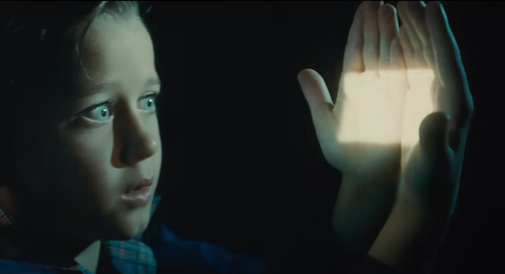
EUROCHEESE: Ben, I've never been a huge Spielberg defender, so here's my chance! I was bound to see The Fabelmans through rose-colored glasses because I saw its glowing reception with Steven Spielberg and John Williams in person at the AFI Festival. Even so, scene after scene landed with me and I left the theater smiling ear-to-ear. I'm curious to hear what didn't land with you...
BEN MILLER: Personally, it all felt so phony. I saw everything he was trying to do as the same thing everyone gets on Marvel or Star Wars for. He was too invested in giving us Spielbergian Easter eggs to focus on a coherent story. It's one thing to share little tidbits about growing up if you are an up-and-coming director without the hits, but we are talking about the most famous and mainstream director of the last 45 years! Hell, it's audacious to call this an Original Screenplay. This is essentially an adaptation of Susan Lacy's 2017 documentary Speilberg.
EUROCHEESE: Well, I doubt I'll turn you around on the film but I enjoyed the Easter eggs. Coherent? It plays more like a series of vignettes from his childhood. In vignette films some scenes always work better than others. But I was surprised by how funny I often found the film, and I'm glad it didn't delve into his successes as a director. This could have easily waded into self-aggrandizing territory that no Master should attempt.
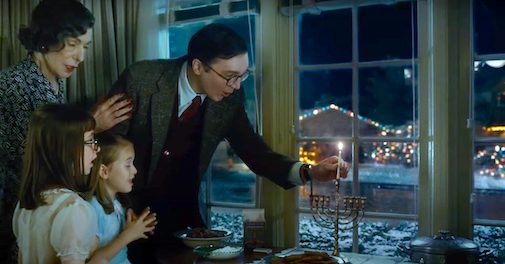
He may have handled his own past with kid gloves, but Spielberg has always maintained a sense of childlike wonder in his films, and that's translated to some of his highest watermarks. It made sense to me that he would look back at his own life like that and with a touch of humor. The Fabelmans felt like stories recounted at a reunion, calling back to the glory days while still having enough self-awareness to realize you've thrown in a few fibs. Over the years your story becomes a mix of facts and fables.
Were there any pieces that worked for you as standalones? While the parents' storyline was a bit long-winded for my taste, the high school girlfriend (I'll grant you definitely exaggerated) hit the spot for me, and you can't tell me there was a more joyful movie ending in 2022 than this one!
BEN MILLER: I LOVED Chloe East! One thing the film was definitely missing was hormones and she was more than willing to oblige. She comes in like an absolute firecracker, and never failed to make me laugh.
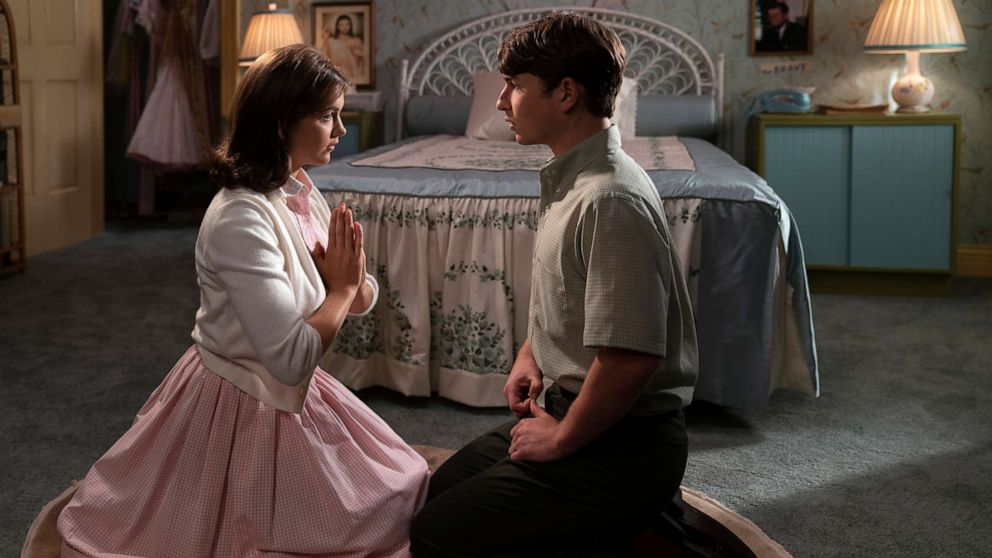
While I didn't fall head over heels in love with Judd Hirsch (his character feels like an early-film deus ex machina), I was also REALLY on board with Paul Dano. Williams is the manic pixie dream mom and Dano is the quiet dorky force which propels the movie. He is the standout in the cast. As for the ending, yes, I'll admit it was great...especially the camera pan up. It was a pretty good year, actually, for directors playing other directors (shoutout to Spike Jonze for the awesomely unhinged Otto in Babylon). And Lynch is perfect as John Ford.
EUROCHEESE: I'm with you on Hirsch actually, but MAN, my audience just ate him up. Mid-movie applause for his exit. I liked Dano quite a bit, and I appreciated his muted tones, which fit his character perfectly. LaBelle was my favorite, pulling the film together mostly by responding to all the storylines with a believable central throughline that felt surprisingly lived-in. Even Rogen might be giving his best performance on screen. And I hope to see Chloe East again soon!
BEN MILLER: I have a feeling Michelle Williams (who I usually am all about) is the majority of my problem with the movie. I could not get on board with anything about either the character or her performance. I'm assuming you were a big fan. Talk me into it.
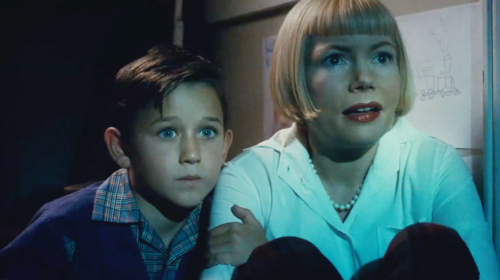
EUROCHEESE: Of all the BIG performances this year (Mark Rylance, Margot Robbie, Mia Goth... and at least a dozen others), this might still be the most over-the-top. In early scenes it felt misguided and tonally out of sync with the movie. Still, when the story moved away from her and came back, something fell into place for me. His mother was a larger-than-life figure who shaped his whole world and clearly had some struggles he didn't understand at a young age. When she brought the same high energy while trying to reconnect with him, it recontextualized her. This was a woman who wasn't able to control herself. An adult might see red flags in a person like this, but a child (especially her child) would likely see her as adventurous and mysterious. I need to rewatch the film to see if this take holds after another viewing, but even if this is a case of a big swing crossing over into "way too much" territory, Williams ultimately moved back into the positive column for me. While it's not one of my favorite star turns of the year I would call it one of the bravest. It also might be the only way Spielberg could paint a portrait of his mother that made sense to him. I do wish we felt more of their initial bond to help understand the sting of them being at odds by the time he's a teenager.
BEN MILLER: There's a really interesting point to be made about how your audience applauded Hirsch. In my screening, I felt like the whole film was a joke I wasn't in on. Every choreographed laugh and story beat was tailor-made for an audience to react to. The Hirsch scene and the John Ford scenes, especially. And that's Spielberg's greatest trick. He has somehow convinced the world he is this avant-garde film dork who only cares about the "reality" of film while simultaneously being a very conventional and commercial filmmaker. He is an exceptional visual director, but I think his true genius is in his ability to know what an audience wants. My biggest shock in regards to The Fabelmans has been its relative lack of box office success. This feels like a movie that people would be flocking to. But maybe it's just bad luck (competing with Black Panther and Avatar = no-win situation).
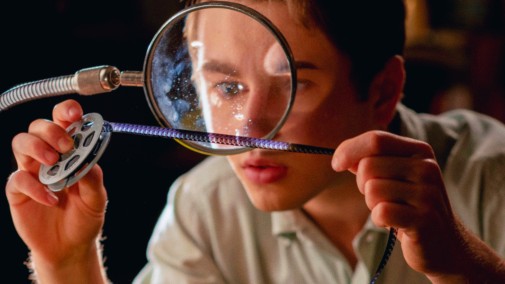
As for Williams, Spielberg obviously has complicated feelings about his mother. I don't have a problem with going big, but it felt like the Family Guy skit about Dharma & Greg. I get quirks, and I get the free spirit, but it became way too much. Like you, I connected much more with LaBelle, but mostly in the quieter moments. Most of my issues with The Fabelmans are script-related, and when he starts espousing platitudes about how he made the school bully look like he could fly, that stuff lost me. It's true that kids rarely act like real kids in movies, but this film was a terrible perpetrator. Julia Butters (through no fault of her own) was in the same boat playing Spielberg's sister.
Maybe I'm being too harsh. I just saw the film as Spielberg getting lost in celebrating his own mythology. "Hey, did you know I was Jewish?" "Did you know I love the spectacle of movies?" "Did I ever tell you about the time I met John Ford?" I wasn't expecting one of the most celebrated filmmakers of my lifetime to attempt something this phony.
EUROCHEESE: For me, it felt more like a magic trick than something phony. As a director he's always earnestly tried to please the audience. This movie speaks to why that's the case, though. His filmmaking was built on making an impact. I'm generally not a fan of catering to an audience so directly, but Spielberg gets away with it in ways other directors wouldn't dare. As for its box office, not only was it a losing battle against the CG blockbusters I suspect it was a case of expectations. I walked into it thinking it was what general audiences would call a "homework movie" about a boy struggling with family issues. What I found inside was a popcorn film. Its charms worked on me, and if I'm a sucker for getting pulled into his showmanship, well, I'm happy to be suckered.
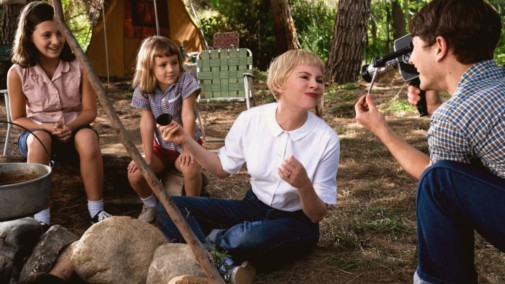

- All Quiet on the Western Front - poetic or vacuous?
- Babylon - thrilling or interminable?
- Everything Everywhere All At Once - essential or exhausting?
- TÁR - utterly engrossing or underwhelming?
- Triangle of Sadness - facile or multi-faceted?
- The Whale - moving or just plain bad?